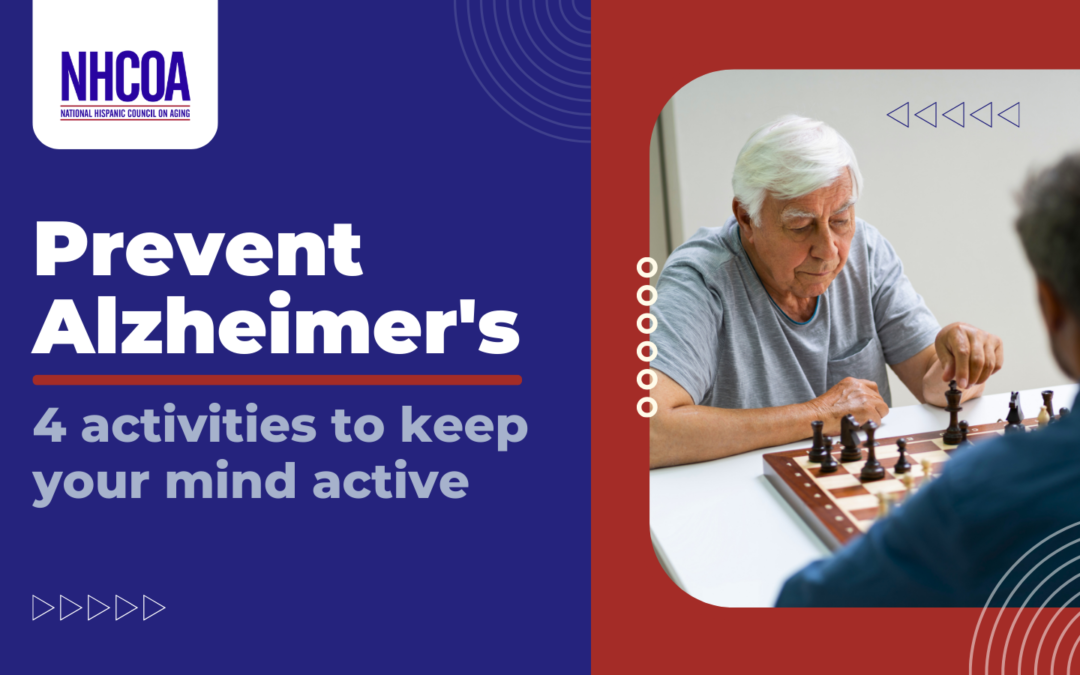Alzheimer’s is a disease that affects more than 6 million people living in the United States, many of them over the age of 65. It is a brain disorder that affects memory and thinking ability and, over time, the ability to perform everyday activities. Some symptoms of Alzheimer’s are cognitive and others are behavioral, so we may notice changes in their personality and behavior.
Keep in mind that Alzheimer’s disease is not a normal part of aging, but rather the result of complex changes in the brain that begin years before symptoms appear and result in the loss of neurons and their connections. This is why it is important to keep ourselves “cognitively active,” meaning to stimulate our brain to keep it active.
It is important for the family and people close to the patient to understand Alzheimer’s disease and its symptoms in order to be able to identify them. This will help them to adapt to the demands of each phase of the disease and provide the necessary resources to cope with it.
Memory problems are one of the first signs of Alzheimer’s disease, but it is important to note that symptoms vary from person to person and may develop in different order and intensity. Some cognitive symptoms may include difficulty finding or expressing words, spatial and vision problems, and impaired reasoning or judgment, which can affect decision-making. Other symptoms may include changes in the person’s behavior, such as taking longer to complete daily tasks, repeating questions, having trouble managing money and paying bills; wandering and getting lost; losing or misplacing things in unusual places; displaying mood changes; having more anxiety or being more aggressive.
The disease begins to manifest gradually and is usually conditioned by brain damage throughout life, genetic changes or differences that may be hereditary, lifestyle, strokes, high blood pressure, diabetes, obesity, among other health conditions. This is why if we recognize any of these risks in our family we can suggest some activities to keep our brain active and increase the cognitive reserve to compensate for the effects of aging or potential brain alterations caused by neurodegenerative diseases such as Alzheimer’s disease.
These daily activities are excellent to keep the brain active:
1. Reading. It is one of the most recognized activities to promote cognitive stimulation. In addition to providing understanding, reading is a great activity to promote concentration, exercise the memory and feed the imagination. Whether it is a newspaper or a magazine, reading at least 15 minutes a day is enough to give the necessary input to the brain.
2. Board games. Board games are a good tool to train different cognitive skills. Thus, depending on the characteristics of the game, it will stimulate calculation, recent memory, logic, planning ability, vocabulary or creativity, among other skills.
3. Learning. Learning new things at any age will stimulate our cognitive activity. Learning a new language, playing a musical instrument, attending classes or lectures on general culture, cooking or sports.
4. Change routines. Adding new routines to your daily life, or varying the usual ones, contributes to creating new neural connections. You can try choosing a different route to work, change the organization of your drawers or use the cutlery with the opposite hand.
Adopting these activities on a daily basis will make all the difference in a diagnosis of Alzheimer’s disease. As a matter of fact, the length of time a person can live with Alzheimer’s varies depending on the progression of the disease and the cognitive wear and tear it entails. It can be as little as 3 or 4 years if over the age of 80 when the disease is diagnosed, or as long as 10 years or more if younger. In either case, it is necessary for older adults with Alzheimer’s to know what their care options are and to express their wishes to their caregivers as soon as possible after a diagnosis.
References:
https://blog.fpmaragall.org/reserva-cognitiva
https://blog.fpmaragall.org/sintomas-cognitivos-y-conductuales-del-alzheimer
https://www.alzheimers.gov/es/alzheimer-demencias/enfermedad-alzheimer


Recent Comments